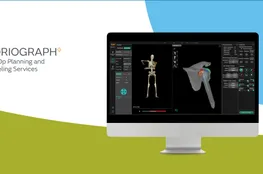In the rapidly evolving digital landscape, businesses are increasingly relying on artificial intelligence (AI) and advanced analytics to refine their risk management strategies. These AI-driven techniques empower organizations to foresee potential threats, make informed decisions based on data, and safeguard their assets and operations more effectively. A recent panel discussion delved into the transformative role of AI and analytics in risk management, highlighting how these technologies can be harnessed for a more resilient future. However, while AI provides powerful tools to predict and counteract risks, it also presents new challenges to navigate.
Jayakumar Mohanachandran, Group Chief Information Officer at Buzeki Enterprises, stressed the necessity of a cohesive strategy to manage AI's dual nature. 'We need a unified strategy to scale,' he asserted. 'Known risks exist, but AI brings emerging threats. It’s beneficial, yet it simultaneously elevates risk. We must be proactive,' Mohanachandran explained.
This viewpoint underscores the urgent need to develop AI-driven defenses while staying vigilant against AI-enhanced threats. Striking a careful balance between leveraging AI's predictive capabilities and guarding against its risks is critical to maintaining operational security.
Alok Gupta, Director and Regional Head of Financial Crime Analytics at HSBC, discussed AI's potential to strengthen defenses, noting its dual role. While AI may 'make identifying criminals quite challenging,' it also provides insights into the motivations behind cyber attacks and malicious activities. 'It helps us understand the power of the network,' he elaborated, emphasizing the necessity to distinguish misleading signals from legitimate ones swiftly and economically. 'Rapidly identifying the difference between wrong and right signals is key,' Gupta emphasized.
His insights highlight AI's ability to enhance decision-making and precision in cybersecurity while acknowledging the challenge of filtering true threats from false alarms amid overwhelming data volumes. The panel also focused on how AI can modernize cybersecurity measures through automation, increasing precision in detecting and mitigating cyber threats. AI systems excel in identifying network anomalies, spotting unusual patterns, and preemptively responding to potential attacks. These abilities enable organizations to stay one step ahead, particularly when faced with automated threats that AI can help detect and nullify efficiently.
Mohanasevlan Jeyapalan, Senior Vice President, PMO at Expo City Dubai, commented on cybersecurity's evolution from a technical concern to a priority for executive discussion, pointing out that data quality now requires board-level attention. 'Getting cybersecurity onto board agendas took time, and now data quality is a risk that needs executive focus,' Jeyapalan remarked.
This shift signifies a crucial alignment of cybersecurity with broader business strategies, ensuring that executive leaders are fully engaged in securing data quality and managing risks. Another prominent theme from the panel was utilizing AI and analytics for predictive risk management. By analyzing vast datasets, AI allows companies to forecast and prioritize threats, enabling them to take proactive actions. This approach significantly enhances resilience against cyber incidents and other disruptions. AI aids security teams in making more precise predictions about the timing and location of threats, allowing companies to allocate resources more strategically.
Anoop Kumar, Head of Information Security Governance and Compliance at Gulf News, Al Nisr Publishing, echoed this sentiment: 'Proper risk management is essential,' he stated.
In conclusion, as AI-driven risk management strategies gain traction across industries, companies are increasingly recognizing the need to stay ahead of AI's potential and its challenges. By implementing a cohesive strategy combined with ongoing innovation, organizations can leverage AI and analytics not just to protect against cyber threats but to gain a sustainable competitive edge. The panel's insights illustrate that the future of risk management will be significantly influenced by AI, and businesses must be prepared to manage its complexities to succeed in a digital world.
























